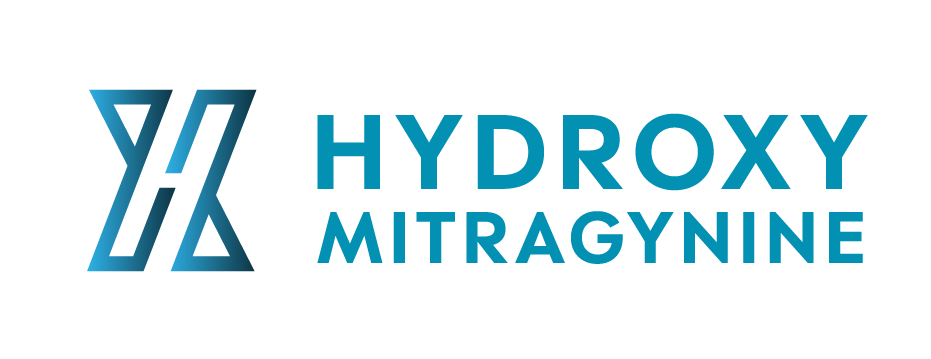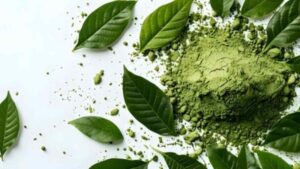There have been only a few compounds that have caused such curiosity and controversy as the compound 7-OH (7-hydroxy) as the world of botanical supplements has evolved.
Whether it is cutting-edge formulations of supplements, new science-based research, small communities, or even debates around regulations, 2025 is developing to become a launching block for 7-OH.
This blog is going to delve into this compound, its trends, projections into the future, legal perspective, and application in life, trying to get a rational, objective picture of what to expect in the realm of 7-OH.
What Is 7-OH?
The most common metabolite associated with kratom is 7-OH. It is naturally synthesized in the body through the metabolism of some alkaloids and has attracted attention with its unusual properties.
These are that it has a comparatively long half-life, the possibility of influencing mood, and a variety of uses in cognitive assistance or even in the testing of criminal case materials. With more supplements available on the market and the continuous studies going on, the discussion of this compound becomes increasingly complex.
The Science Behind 7-OHng
When you are taking kratom, your body struggles to break down such substances. In this process, one of the byproducts can be 7-OH, which can have numerous effects on the body.
It has been speculated that it acts on the various receptors present in the brain and body, which may be one of the reasons why it has so many different potential benefits.
- Neuroprotective Effects: Some studies indicate that 7-OH may help protect neurons from damage, making it an interesting candidate for neurological research.
- Cognitive Enhancement: Users often report improved focus and cognitive function when using 7-OH supplements.
- Mood Improvement: Many people have noted mood-enhancing effects that can come from incorporating this compound into their routines.
7OH Trends: Where Are We in 2025?
The discourse on 7-OH has gained traction well beyond botanical enthusiast circles:
1. Rising Popularity in Wellness and Supplement Markets
- Supplement brands increasingly include 7-OH in their formulations—especially nootropic blends and cognitive-support products.
- Options such as capsules, tablets, and liquid extracts are expected to see a surge in availability, allowing for easier, more precise dosing and broader market reach.
2. Integration into New Product Categories
- Beyond standalone 7-OH supplements, there’s a noticeable trend of blending this compound with other botanicals and adaptogenic formulas, creating products tailored to focus, energy, and mood balance.
- Some wellness brands are exploring the use of 7-OH in aromatherapy and even in mood-balancing sprays and sprays, tapping into consumer interest in multi-sensory wellness.
3. Growing Focus on Research and Safety
- Ongoing scientific studies are fueling both excitement and cautious optimism. Researchers are exploring 7-OH’s biochemical pathways, possible cognitive effects, and interactions with various receptors.
- As awareness grows, both manufacturers and users are calling for transparency, clear dosage recommendations, and more robust user education materials to navigate responsible use.
4. User-Centric Communities
- Online forums and consumer-driven reviews play a key role in spreading information and best practices related to 7-OH.
- These communities will continue to shape consumer trends, share firsthand experiences, and push for responsible product labeling and third-party testing.
7OH Prediction: What’s Next for 2025 and Beyond?
1. Expanded Research & Industry Standards
The supplement industry would like new regulatory clarity on the issue of standardized dosage and efficacy, and predicts the next few years may feature more stringent guidelines and evidence-based claims.
There could also be the possibility of enhancing its presence among wellness consumers, as there may be greater availability of high-quality, synthetically produced 7-OH, which can reduce the expense.
2. Transparency and Product Quality
It is a given that a lot clearer labeling is to be expected shortly, detailed information concerning dosages, ingredients, and other possible side effects is to be the norm.
The most popular brands are most likely going to invest in educational webinars, dosage calculators, and direct user support, and it will be more convenient to consumers to take that 7-OH safely and productively.
3. Legalization & Regulatory Outlook
There is a hot issue of the legal future of 7-OH. Since kratom statutes are still at an impasse at the jurisdiction level, there is a growing discussion concerning how potentially isolated compounds such as 7-OH can be dealt with under new supplement regulations.
As more research and advocacy are carried out or developed, it seems that the attitude towards 7-OH as seen by the regulators is bound to be a mix of the sterner optimism backed by the stricter adherence, and only further down the road will the whole industry adopt a more relaxed yet considerably stricter response to it.
Will 7OH Be Legalized?
Whether 7-OH will gain a clear, positive regulatory status in 2025 is complex:
- Current Status: 7-OH’s legality is closely linked with kratom laws, which differ regionally. Some markets regulate kratom and related compounds strictly, while others have more permissive stances, especially regarding derivatives formed during metabolism.
- Future Developments: Industry watchers predict that, as research clarifies 7-OH’s safety profile and distinct applications, regulatory frameworks may evolve to address it separately from raw kratom or other alkaloids. The push for clearer supplement regulation and greater transparency is likely to help these efforts.
- User and Industry Advocacy: Consumer advocacy groups and research coalitions will continue lobbying for evidence-based, pragmatic approaches to policy—seeking to prevent unduly restrictive regulations while supporting responsible, safe use.
In summary, while full legalization is not assured, a more nuanced approach to regulation, distinguishing 7-OH from its parent plant and other substances, seems likely.
How People Use 7OH?
Consumers use 7-OH in a variety of ways, generally reflecting trends in the supplement and wellness domains:
1. Supplementation
- Capsules/Tablets: Convenient and precise, these are among the most popular formats, often taken as part of a daily routine for general cognitive or subjective well-being support.
- Liquid Extracts: For those seeking fast absorption or custom dosing, liquid extracts are becoming increasingly common.
2. Nootropic Blends
7-OH is being used in more and more nootropic stacks, giving customers seeking cognitive support or focus what they are after.
3. Lifestyle & Wellness Products
Other brands are even exploring developing 7-OH into rejuvenating drinks or calming aroma sprays, an indication of the general shift in wellness services towards customization.
4. Forensic and Research Applications
Beyond its consumption, 7-OH is also useful in forensic applications such as detecting substance use, and current research on its properties is expanding its possible use in research and even toxicology testing.
Key Benefits
7-OH is often described as:
- Having stimulating or focusing potential (especially at moderate doses).
- Offering a unique wellness profile when combined with other botanicals.
- Allowing for targeted supplementation thanks to increased industry transparency and advanced production methods.
No supplement is free of risks, and user experiences vary widely. Product marketing for 7-OH is shifting to focus on responsible use, realistic expectations, and educating consumers about dosing, potential side effects, and the importance of third-party testing.
What to Watch: Responsible Use, Risks, and Side Effects
While many users report subjective benefits, responsible use includes:
- Starting with the lowest suggested dose and slowly adapting based on individual response.
- Consulting healthcare professionals before combining 7-OH with medication or other supplements.
- Being mindful of potential side effects, such as drowsiness, mild gastrointestinal discomfort, or—in rare cases—restlessness.
The drive for user education in 2025 is part of broader supplement industry changes, emphasizing safety, labeling, and transparent communication.
Final Thoughts
The year 2025 will be a critical year for 7-OH because it is a product of a niche metabolite and is beginning to enter the realm of a mainstream supplement ingredient with increased scientific support and consumer interest.
The tendencies are associated with an increased range of goods, better transparency, and research intensity, thus making use safer and more informed.
On the one hand, the current regulatory situation is still under development, but on the other hand, active advocacy and new regulations can become new possibilities for 7-OH legalization and an increase in accessibility and availability.
With further discovery of its potential by the people, responsible use and education will enable it to get as much of the positive effect as possible with minimal risks to it.






















